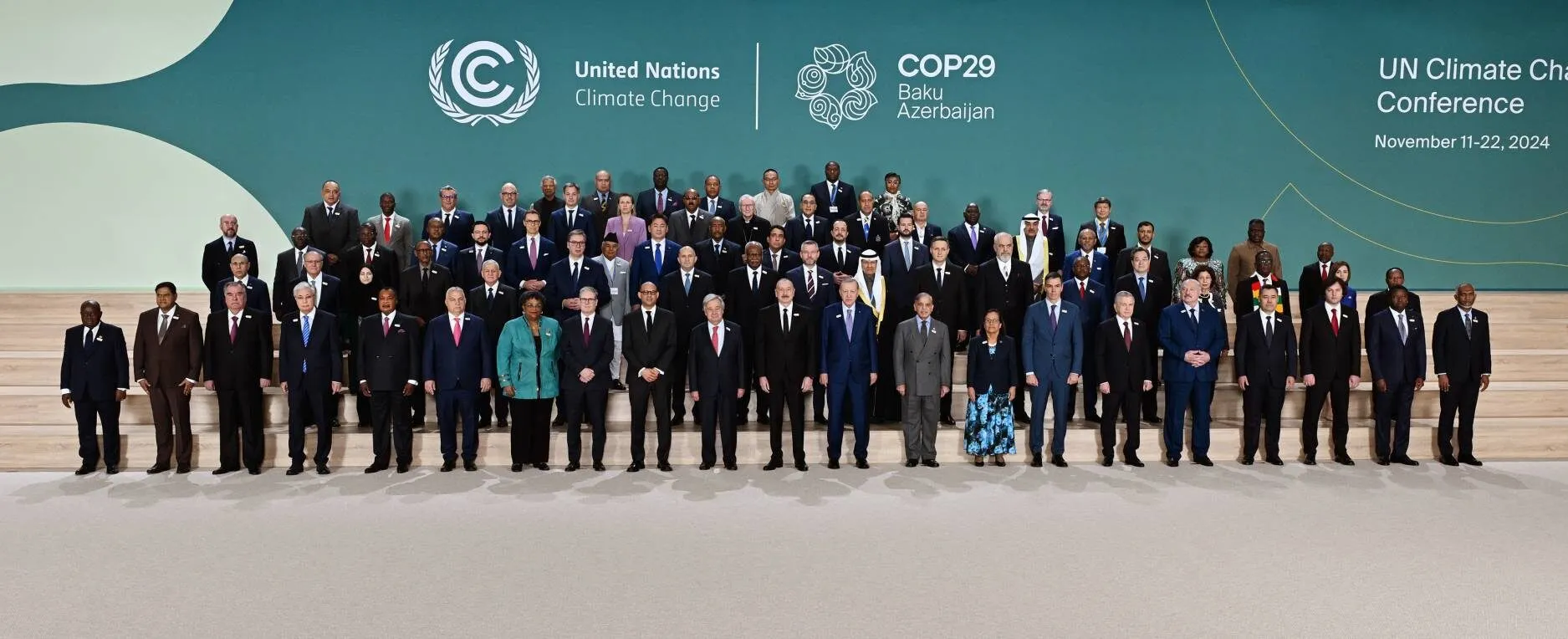“Nature cannot wait and the stakes couldn’t be higher”: Consecutive climate conferences leave campaigners disappointed

© President.az, CC BY 4.0, via Wikimedia Commons
02.12.2024
The 2024 COP16 Biodiversity Conference, held in Cali, Colombia, and the COP29 Climate Conference in Baku, Azerbaijan, have shaped the environmental agenda over the last two months. However, despite high expectations and global participation, they both faced widespread criticism for their lack of decisive action on critical environmental issues.
At COP16, efforts to advance the Kunming-Montreal Global Biodiversity Framework (GBF) were hindered by funding disputes and insufficient national commitments, and the conference failed to deliver legally enforceable actions to meet its goals.
There was some progress, notably a historic decision to establish a new body on matters related to Indigenous Peoples and local communities. Additionally progress was seen with the creation of the voluntary Cali Fund to finance conservation through the commercial use of genetic data. Despite these advances, major financial gaps remain, and with only 17% of land and 8% of oceans currently protected – far short of the 30×30 goal to protect 30% of the planet by 2030 – much more is needed. The stalled progress left campaigners, including ERF grantee partner ClientEarth, calling for immediate and enforceable measures to address the financing crisis and halt biodiversity loss.
ClientEarth noted that: “Progress on both reversing the decline of biological diversity and limiting global temperature rise have been slower than we need it to be. The agreements made at previous COPs are meaningless without being enforced and enacted”
Meanwhile, the COP29 Climate conference in Azerbaijan received significant backlash for its finance deal, and for failing to establish binding timelines for phasing out fossil fuels or achieving net-zero emissions.
The finance deal to help poorer countries address the growing threats from climate change was the key aim of COP29. However tensions culminated on the final night when members of the Alliance of Small Island States (AOSIS) and the Least Developed Countries (LDCs) walked out in protest. A deal was eventually reached in the early hours of Sunday, 24th November—two days past the conference’s official closing date—raising the annual contribution of wealthier nations to $300 billion by 2035. Yet developing countries expressed deep concern that this was insufficient, with experts claiming that meeting those development and mitigation goals would require at least $1 trillion a year.
Postponing any decisive action on phasing out fossil fuels to next year’s summit was particularly contentious, given the host country Azerbaijan’s deep reliance on oil and gas exports. The challenge of achieving consensus in such a context was underscored by Azerbaijani President Ilham Aliyev’s opening remarks, in which he referred to oil and gas as a “gift from God”.
Martin Harper, CEO, BirdLife International concluded: “The world is not moving at the pace and scale needed. Nature needs more than a compromise and a stalemate… These outcomes are too little, but it’s not yet too late. There is hope that governments can still do more to solve the climate and biodiversity crisis. We must continue our fight to save nature using every possible avenue including the UN climate conferences. Nature cannot wait and the stakes couldn’t be higher.”